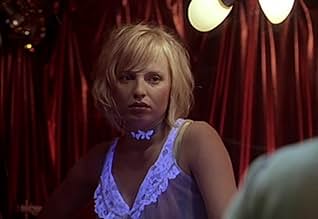Very fine film, beautifully photographed and directed with a wonderful central performance from Olga Kurylenko, who of course, has deservedly gone on to find fame and fortune, while this gem languishes, barely seen. I had never heard of it when I picked it up but am certainly glad I did. Based on a book by Japanese author Yoko Ogawa this is a marvellously quirky tale on the nature of obsession and possession. Some have mentioned David Lynch and I would have thought most of his fans would enjoy this. Set mainly in the port of Hamburg, we get a fantastic painterly picture with the increasingly strange happening inside as people visit to have painful memories preserved and thereby contained. Very Japanese in concept and this would have worked more easily in a Japanese setting but this is still a unique experience well worth seeing. Oh, and I almost forgot mesmerising score from Beth Gibbons, which is sadly not available.



























